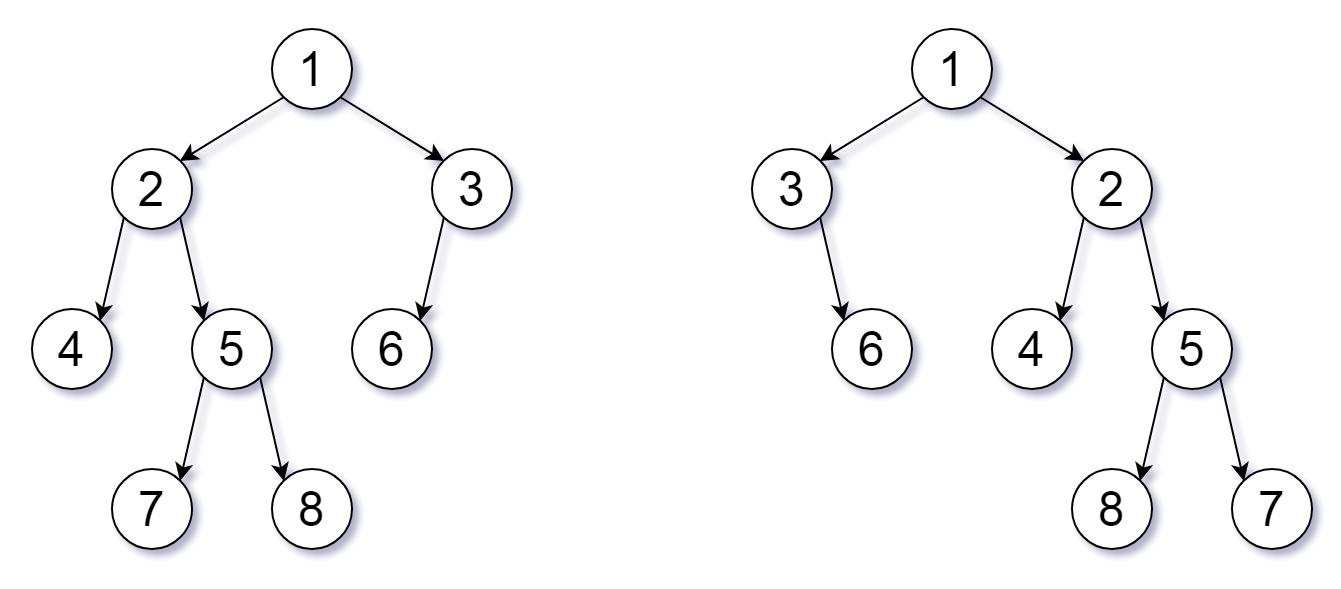QUESTION:
For a binary tree T, we can define a flip operation as follows: choose any node, and swap the left and right child subtrees.
A binary tree X is flip equivalent to a binary tree Y if and only if we can make X equal to Y after some number of flip operations.
Write a function that determines whether two binary trees are flip equivalent. The trees are given by root nodes root1 and root2.
Example 1:
Input: root1 = [1,2,3,4,5,6,null,null,null,7,8], root2 = [1,3,2,null,6,4,5,null,null,null,null,8,7]
Output: true
Explanation: We flipped at nodes with values 1, 3, and 5.
Flipped Trees Diagram

Note:
Each tree will have at most 100 nodes. Each value in each tree will be a unique integer in the range [0, 99].
EXPLANATION:
题目看到的时候,是说在无限的情况下,两者相等,那么我们就可以逆向思维:既然经过了变动你们相等,那么我们就反过来。往你那个方向变,看能不能变换成功。
所以思路:
1.判断当前节点是否相等,不相等返回false(只有根节点需要判断,因为后面的left,right的判断已经包含了这次值的判断)
2.如果左右节点进行了互换,那么就对互换的节点进行分别进行判断
3.如果没有进行互换,则同样进行子节点的判断
4.结果就是左右节点的&运算,必须左右都为true才为true
SOLUTION:
class Solution {
public boolean flipEquiv(TreeNode root1, TreeNode root2) {
if(root1==null && root2==null) return true;
if(root1 != null && root2 !=null && root1.val == root2.val){
return flipEquivHelper(root1,root2);
}else return false;
}
public static boolean flipEquivHelper(TreeNode root1,TreeNode root2){
int left1 = root1.left==null?-1:root1.left.val;
int right1 = root1.right==null?-1:root1.right.val;
int left2 = root2.left==null?-1:root2.left.val;
int right2 = root2.right==null?-1:root2.right.val;
if(left1==left2 && right1 == right2 ){
boolean left = false;
if(left1!=-1) left = flipEquivHelper(root1.left,root2.left);
else left=true;
boolean right = false;
if(right1!=-1) right = flipEquivHelper(root1.right,root2.right);
else right = true;
return left&right;
}else if(left1==right2 && right1==left2){
boolean left = false;
if(left1!=-1) left = flipEquivHelper(root1.left,root2.right);
else left = true;
boolean right = false;
if(right1!=-1) right = flipEquivHelper(root1.right,root2.left);
else right = true;
return left&right;
}else return false;
}
}